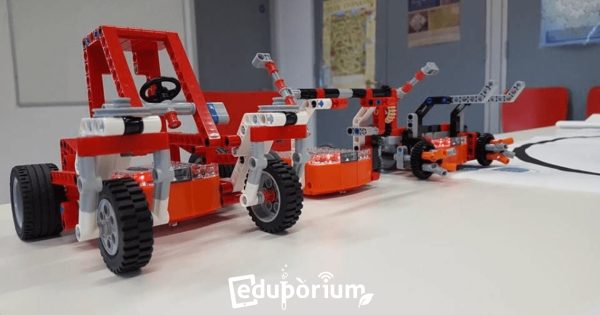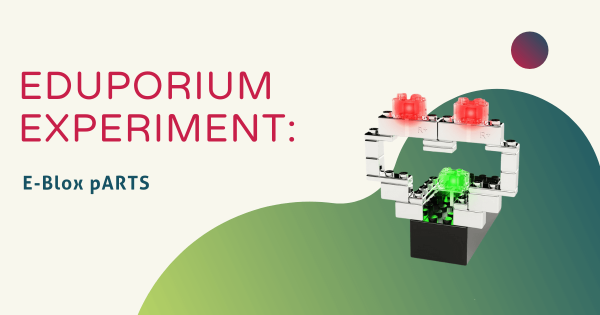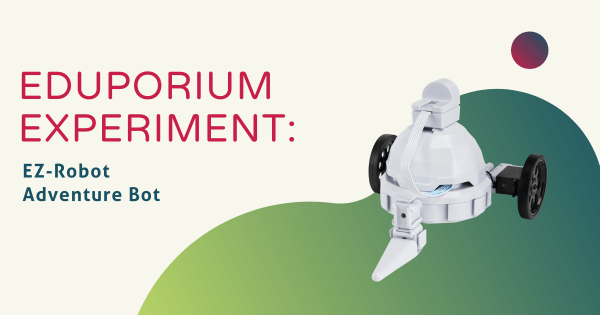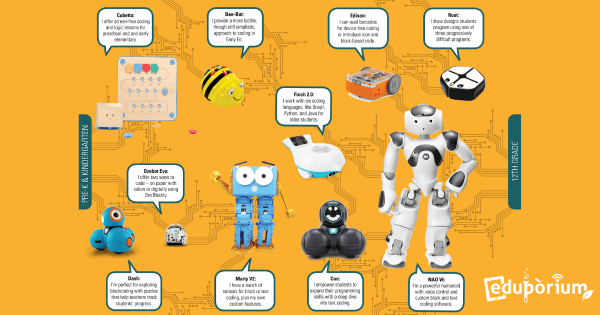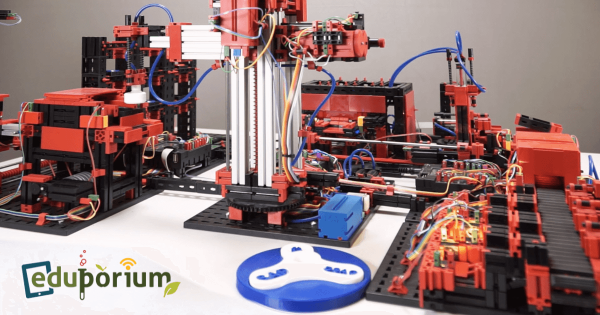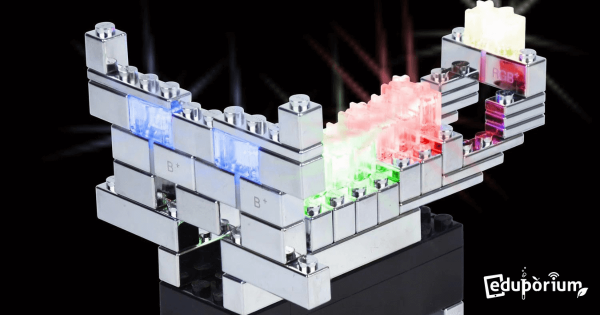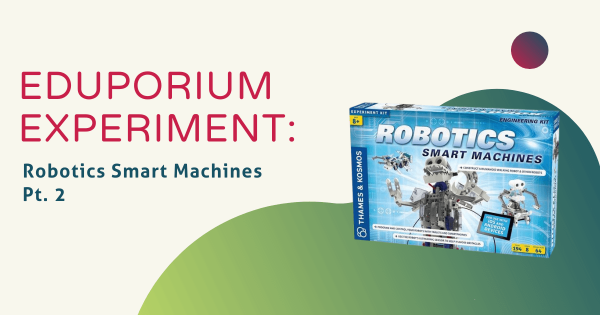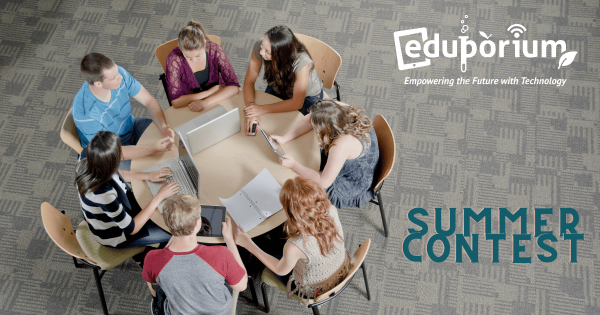In the past, the Edison worked with Web-based software called EdWare and was designed for use on Chromebooks. Now, Microbric, its manufacturers, have released new programming software called EdBlocks, which allows kids to program Edison more enjoyably and effectively, including with LEGO compatibility.
Andy Larmand
-
Eduporium Experiment | E-Blox pARTS
At Eduporium, we like tech tools that progress with students as they learn more skills. There are plenty of kits and product lines that do the same and one of them, which we were only introduced to recently, is E-Blox. The E-Blox team has created a new and perhaps even more exciting spin on LEGO’s—one that will get kids excited -
Eduporium Weekly | 5 Ways We Create Lasting Partnerships
To us, being partners means that we’ll always help educators learn what’s best for their students and develop a plan to achieve those goals—not try to sell them the most expensive tools out there. See how we can partner with your school, library, or makerspace to help empower your students with technology they can use to build key skills. -
Eduporium Experiment | EZ-Robot Adventure Bot
We have discovered more STEM products in the EZ-Robot line and have added all of them to our store. The EZ-Robot team really has thought of everything—well, just about everything. Joining the original models are a Battle Flipper, Galapagos Bot, and the subject of this week’s Eduporium Experiment—the EZ-Robot Adventure Bot. -
Teaching STEM with Robotics Tools that Grow with Kids
Robotics kits are incredibly valuable for teaching students the skills they really need to know. They’re useful for shaping real problem solving skills, creativity, and, most importantly, coding. The best part? Students can use robotics tools in any grade—starting in Pre-K with super simple models and continuing through high school with the more complex tools. -
Keeping Teachers Sharp During the Summer
Ah, the myth of having summers off. Those outside the teaching profession tend to become filled with jealousy every year about this time because they’re stuck at work and teachers are stuck…doing absolutely nothing. Or so that’s what they think. The fact is that, especially today, teachers cannot afford to take summers completely off. -
The Fischertechnik Line: STEM With Something for All Students
Their top-notch designs, user-friendly integration, and expanding variety of STEM-based projects ensures that every student will remain engaged and learning while interactively doing something they enjoy! With these STEM kits from Fischertechnik, students get to follow the blueprints, design new devices, and build everyday tools, like hair dryers and windshield wipers! -
E-Blox Help Expand STEM...And They're NEW to Our Store
Connectable toys, like LEGOS, can serve as building blocks for a lot more than engineering household castles and transformable structures. With its very legitimate place in STEM education, E-Blox has gone on to create the next generation of LEGO-based learning and are on track to disrupt STEM education with a line of tech kits that get kids working with their -
Eduporium Experiment | Robotics Smart Machines Pt. 2
Thames & Kosmos is known—at least throughout our office—as a company that perfectly combines technology, construction, and just about every STEM discipline. They have a number of hands-on kits that help kids learn the basics of solar energy, coding, atoms, and a ton more. This week, we dove into their Robotics Smart Machines Kit. -
Your Chance to Win FREE EdTech All Summer Long!
With one quick sign-up, you could have the opportunity to win $100 worth of STEM, maker, and PBL tools to help revamp your classroom, library, or makerspace (or make it pop even more)! Our daily trivia contest is continuing all summer long with a new chance to win $100 to the Eduporium store every single night! Sign up to get



